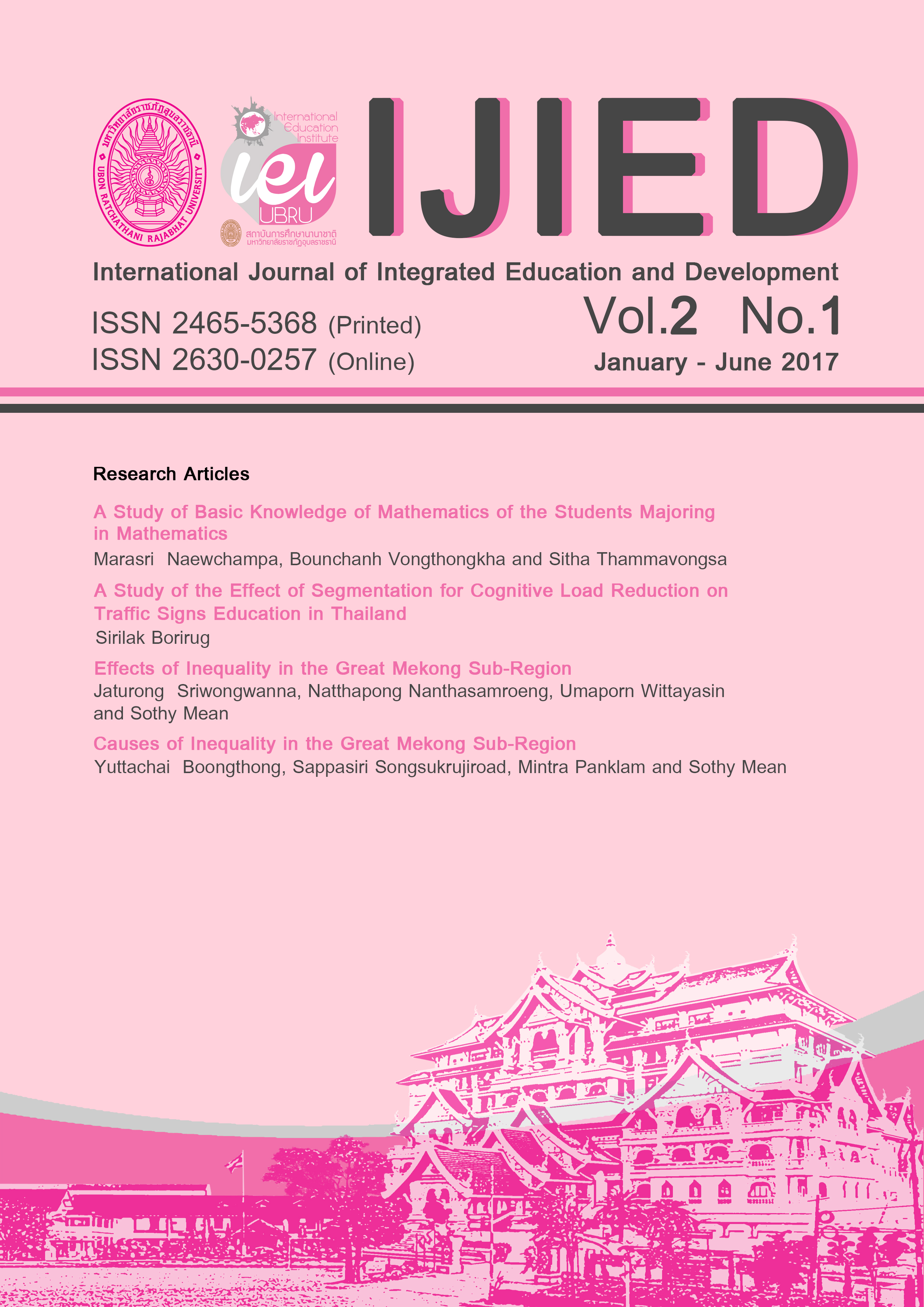Effects of Inequality in the Great Mekong Sub-Region
Main Article Content
Abstract
The objectives of this study were to: 1) study impact factors of inequality and 2) compare the effects that contribute to inequality grouped by gender, age, nationality and country of residence by using a questionnaire to collect data from all 600 participants who were students of Ubon Ratchathani Rajabhat University (Thailand), Pakse Teacher Training College and Champasak University (Laos) and University of South-East Asia (Cambodia). Statistics used in data analysis were mean, standard deviation, t-test, and f-test.
The findings of the study indicated that,
1. Factors affecting inequality were educational opportunities (a mean of 3.85), career opportunities (a mean of 3.82), quality of life (a mean of 3.77), poverty (a mean of 3.76) and health services (a mean of 3.52).
2. Gender differences resulted in inequality of educational opportunities, career opportunities and Poverty.
3. Differences in nationality affected inequalities of educational opportunities, career opportunities and poverty.
4. Differences in the country of residence resulted in inequality of all factors.
Article Details
A copyright notice is a short line of text that lets the public know that your work is protected by copyright law and is not to be copied.


